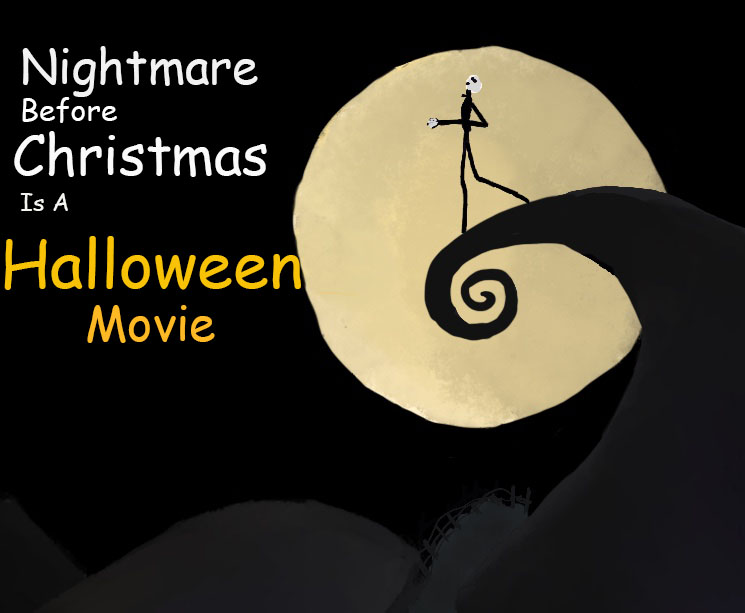‘The Nightmare Before Christmas’ is a classic movie for the Halloween season
“The Nightmare Before Christmas” is a popular family film directed by Tim Burton. Although it has some elements of Christmas, the movie undoubtedly belongs to Halloween.
As our country becomes increasingly divided and partisan, it’s more important than ever that we focus on the things which hold us all together- the core values all Americans share, the beliefs we all hold dearly regardless of political party. Among those core American beliefs is the idea that certain movies should be watched only during certain times of the year. There may be no greater example of this than “The Nightmare Before Christmas,” a classic family film which any reasonable American would agree is a Halloween movie, not a Christmas movie.
The main characters of “The Nightmare Before Christmas” are purely Halloween. Protagonist Jack Skellington may prove to have a good heart, but is nonetheless spindly and unnerving to look at, eliciting images of spiders and the skeletons for which he is named. His love interest Sally is equally gothic, with a Frankenstein-like aesthetic and body parts that unravel and detach.
Even as the characters adventure through Christmas Town, they carry their Halloween-esque flair, maintaining the movie’s spooky atmosphere and eclipsing any cutesy peppermint-mocha vibes which may otherwise have been present. The animation itself is also creepy, with an unsettling stop motion technique that pervades the film.
Furthermore, the most iconic, well known song of the movie is “This Is Halloween,” a song which, shockingly, describes Halloween. It’s nearly impossible to think about the movie without hearing the chanting notes of “This Is Halloween” in the back of one’s mind, reinforcing the movie’s stance as a Halloween classic.
Even if “The Nightmare Before Christmas” was equal parts Christmas and Halloween, it would still be expected by basic holiday season convention that the movie be watched during the month of October. It is generally accepted that all holidays may be celebrated prior to the actual date of the holiday, but any extensive post-holiday celebration may be indicative that the reveler is in denial. This sentiment has been reinforced by the continuous extension of the Christmas season, which once began in December but now begins anytime between Nov. 1st and Thanksgiving, depending on which overplayed department store TV ad you ask.
Therefore, it’s not acceptable to watch “The Nightmare Before Christmas” after Halloween because doing so would fall into the window of post-holiday denial. However, by watching the movie during the established Halloween season, which is prior to both Halloween and Christmas, one can acceptably acknowledge both holidays and avoid uncomfortable conversations with family members concerned about an unwillingness to move on to the next season of celebration.
With all this considered, we as Americans can comfortably agree to unite separately from the comfort of our couches, forgetting about our sorrows and disagreements for a brief time as we watch “The Nightmare Before Christmas,” basking in the Halloween spirit.

